己酸钠, 99.9%,Sodium Hexanoate
产品编号:西域试剂-WR132487| CAS NO:10051-44-2| MDL NO:MFCD00059056| 分子式:C6H11NaO2| 分子量:138.14
N-己酸钠盐是一种生物化学试剂,可作为生物材料或有机化合物进行生命科学相关研究。
本网站销售的所有产品仅用于工业应用或者科学研究等非医疗目的,不可用于人类或动物的临床诊断或者治疗,非药用,非食用,
| 英文名称 | Sodium Hexanoate |
|---|---|
| CAS编号 | 10051-44-2 |
| 产品描述 | N-己酸钠盐是一种生物化学试剂,可作为生物材料或有机化合物进行生命科学相关研究。 |
| 产品熔点 | -3.4ºC |
| 产品沸点 | 204.6ºC at 760mmHg |
| 产品闪点 | 90.3ºC |
| 精确质量 | 138.06600 |
| PSA | 40.13000 |
| LogP | 0.31660 |
| 蒸气压 | 0.158mmHg at 25°C |
| 稳定性 | 本品低毒。参见己酸。 |
| 储存条件 | 密闭、阴凉干燥处。 内衬塑料袋,外用编织袋包装。按一般化学品规定贮运。 |
相关文档
化学品安全说明书(MSDS)
下载MSDS质检证书(COA)
相关产品
| 个人防护装备 | dust mask type N95 (US);Eyeshields;Gloves |
|---|---|
| 危害码 (欧洲) | Xi: Irritant; |
| 风险声明 (欧洲) | 36/37/38 |
| 安全声明 (欧洲) | S26-S36 |
| 危险品运输编码 | NONH for all modes of transport |
| WGK德国 | 3 |
| 海关编码 | 2915900090 |
|
Section 1. Chemical Product and Company Identification Hexanoic Acid, Sodium Salt Common Name/ Trade Name Hexanoic Acid, Sodium Salt Section 4. First Aid Measures Eye ContactCheck for and remove any contact lenses. In case of contact, immediately flush eyes with plenty of water for at
least 15 minutes. Cold water may be used. Get medical attention. Skin ContactIn case of contact, immediately flush skin with plenty of water. Cover the irritated skin with an emollient. Remove contaminated clothing and shoes. Cold water may be used.Wash clothing before reuse. Thoroughly clean shoes before reuse. Get medical attention. Serious Skin ContactWash with a disinfectant soap and cover the contaminated skin with an anti-bacterial cream. Seek medical attention. InhalationIf inhaled, remove to fresh air. If not breathing, give artificial respiration. If breathing is difficult, give oxygen. Get medical attention. Serious InhalationNot available. IngestionDo NOT induce vomiting unless directed to do so by medical personnel. Never give anything by mouth to an unconscious person. If large quantities of this material are swallowed, call a physician immediately. Loosen tight clothing such as a collar, tie, belt or waistband. Serious IngestionNot available. Section 5. Fire and Explosion Data Flammability of the Product May be combustible at high temperature. Auto-Ignition Temperature Not available. Flash PointsNot available. Flammable LimitsNot available. Products of CombustionThese products are carbon oxides (CO, CO2). Fire Hazards in Presence of Slightly flammable to flammable in presence of heat. Various Substances Explosion Hazards in Presence Risks of explosion of the product in presence of mechanical impact: Not available. of Various SubstancesRisks of explosion of the product in presence of static discharge: Not available. Fire Fighting MediaSMALL FIRE: Use DRY chemical powder. and InstructionsLARGE FIRE: Use water spray, fog or foam. Do not use water jet. Special Remarks onAs with most organic solids, fire is possible at elevated temperatures Fire Hazards Special Remarks on Explosion Fine dust dispersed in air in sufficient concentrations, and in the presence of an ignition source is a potential dust Hazardsexplosion hazard. Section 6. Accidental Release Measures Small SpillUse appropriate tools to put the spilled solid in a convenient waste disposal container. Finish cleaning by spreading water on the contaminated surface and dispose of according to local and regional authority requirements. Large SpillUse a shovel to put the material into a convenient waste disposal container. Finish cleaning by spreading water on the contaminated surface and allow to evacuate through the sanitary system. Hexanoic Acid, Sodium Salt Section 7. Handling and Storage PrecautionsKeep away from heat. Keep away from sources of ignition. Ground all equipment containing material. Do not breathe dust. Wear suitable protective clothing. In case of insufficient ventilation, wear suitable respiratory equipment. If you feel unwell, seek medical attention and show the label when possible. Avoid contact with skin and eyes. Keep away from incompatibles such as oxidizing agents. StorageKeep container tightly closed. Keep container in a cool, well-ventilated area. Do not store above 8°C (46.4°F). Refrigerate. Section 8. Exposure Controls/Personal Protection Engineering ControlsUse process enclosures, local exhaust ventilation, or other engineering controls to keep airborne levels below recommended exposure limits. If user operations generate dust, fume or mist, use ventilation to keep exposure to airborne contaminants below the exposure limit. Personal ProtectionSplash goggles. Lab coat. Dust respirator. Be sure to use an approved/certified respirator or equivalent. Gloves. Personal Protection in Case of Splash goggles. Full suit. Dust respirator. Boots. Gloves. A self contained breathing apparatus should be used a Large Spillto avoid inhalation of the product. Suggested protective clothing might not be sufficient; consult a specialist BEFORE handling this product. Exposure LimitsNot available. Section 9. Physical and Chemical Properties Physical state and appearance Solid. (Powdered solid.)OdorNot available. Not available. Taste Molecular Weight138.14 g/mole Not available. Color Not available. pH (1% soln/water) Boiling PointNot available. Melting PointNot available. Critical TemperatureNot available. Specific GravityNot available. Not applicable. Vapor Pressure Vapor DensityNot available. Not available. Volatility Odor ThresholdNot available. Water/Oil Dist. Coeff.Not available. Ionicity (in Water)Not available. Dispersion PropertiesSee solubility in water. SolubilitySoluble in cold water, hot water. Section 10. Stability and Reactivity Data StabilityThe product is stable. Instability TemperatureNot available. Conditions of InstabilityExcess heat, incompatible materials Incompatibility with variousReactive with oxidizing agents. substances CorrosivityNot available. Hexanoic Acid, Sodium Salt Special Remarks onNot available. Reactivity Special Remarks onNot available. Corrosivity PolymerizationWill not occur. Section 11. Toxicological Information Routes of EntryInhalation. Ingestion. Toxicity to AnimalsLD50: Not available. LC50: Not available. Chronic Effects on Humans Not available. Other Toxic Effects onHazardous in case of skin contact (irritant), of inhalation. HumansSlightly hazardous in case of ingestion. Special Remarks onNot available. Toxicity to Animals Special Remarks onNot available. Chronic Effects on Humans Special Remarks on otherAcute Potential Health Effects: Toxic Effects on HumansSkin: Causes skin irritation. Eyes: Causes eye irritation. Inhalation: Causes respiratory tract and mucous membrane irritation. Ingestion: May be harmful if swallowed. May affect behavior'/central nervous system (irritabililtiy, confusion, convulsions), blood (changes in blood serum composition). Chronic Potential Health Effects: Ingestion: Repeated or prolonged ingestion may affect behavior/central nevous system Note: The above toxicological information was extrapolated from Hexanoic acid. Section 12. Ecological Information EcotoxicityNot available. Not available. BOD5 and COD Possibly hazardous short term degradation products are not likely. However, long term degradation products may Products of Biodegradation arise. Toxicity of the ProductsThe product itself and its products of degradation are not toxic. of Biodegradation Special Remarks on theNot available. Products of Biodegradation Section 13. Disposal Considerations Waste DisposalWaste must be disposed of in accordance with federal, state and local environmental control regulations. Hexanoic Acid, Sodium Salt Section 14. Transport Information DOT ClassificationNot a DOT controlled material (United States). IdentificationNot applicable. Not applicable. Special Provisions for Transport DOT (Pictograms) Section 15. Other Regulatory Information and Pictograms TSCA 8(b) inventory: Hexanoic Acid, Sodium Salt Federal and State Regulations CaliforniaCalifornia prop. 65: This product contains the following ingredients for which the State of California has found to cause cancer which would require a warning under the statute: No products were found. Proposition 65 Warnings California prop. 65: This product contains the following ingredients for which the State of California has found to cause birth defects which would require a warning under the statute: No products were found. Other RegulationsEINECS: This product is on the European Inventory of Existing Commercial Chemical Substances. Other ClassificationsWHMIS (Canada) Not controlled under WHMIS (Canada). DSCL (EEC)R36/37/38- Irritating to eyes,S26- In case of contact with eyes, rinse respiratory system and skin.immediately with plenty of water and seek medical advice. S36- Wear suitable protective clothing. Health Hazard HMIS (U.S.A.)2 National Fire Protection 1 Flammability 1 Association (U.S.A.) Fire Hazard 2 0 Reactivity Health Reactivity 0 Specific hazard Personal Protection E WHMIS (Canada) (Pictograms) DSCL (Europe) (Pictograms) TDG (Canada) (Pictograms) ADR (Europe) (Pictograms) Hexanoic Acid, Sodium Salt Protective Equipment Gloves. Lab coat. Dust respirator. Be sure to use an approved/certified respirator or equivalent. SECTION 16 - ADDITIONAL INFORMATION N/A |
|
~87% 
10051-44-2 |
| 文献:Kato, Shinzi; Kageyama, Hideki; Takagi, Kazutaka; Mizoguchi, Kazuaki; Murai, Toshiaki Journal fuer Praktische Chemie (Leipzig), 1990 , vol. 332, # 6 p. 898 - 910 |
|
~% 
10051-44-2 |
| 文献:Journal fuer Praktische Chemie (Leipzig), , vol. 332, # 6 p. 898 - 910 |
|
~% 
10051-44-2 |
| 文献:Organic Process Research and Development, , vol. 13, # 3 p. 581 - 583 |
|
~% 
10051-44-2 |
| 文献:Journal of Organic Chemistry, , vol. 53, # 17 p. 3985 - 3988 |
| 上游产品 3 | |
|---|---|
| 下游产品 10 | |




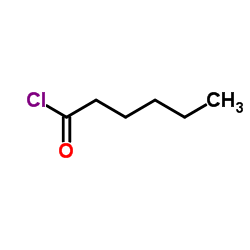
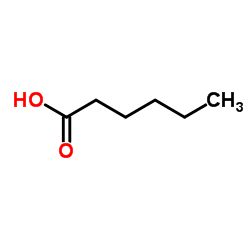
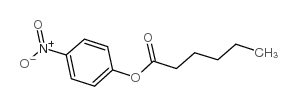
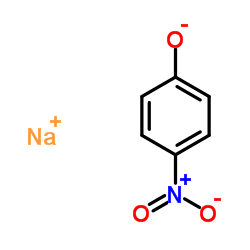
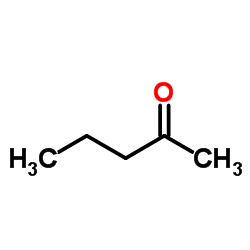
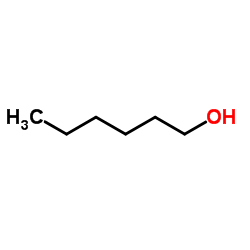
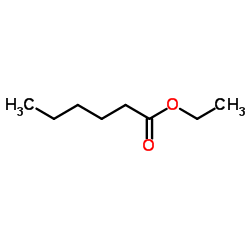
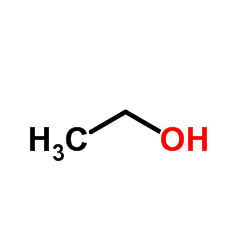
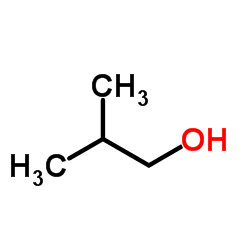
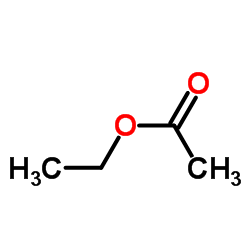

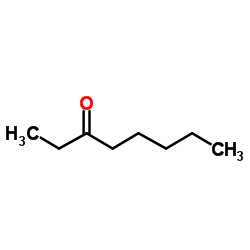







 浙公网安备 33010802013016号
浙公网安备 33010802013016号